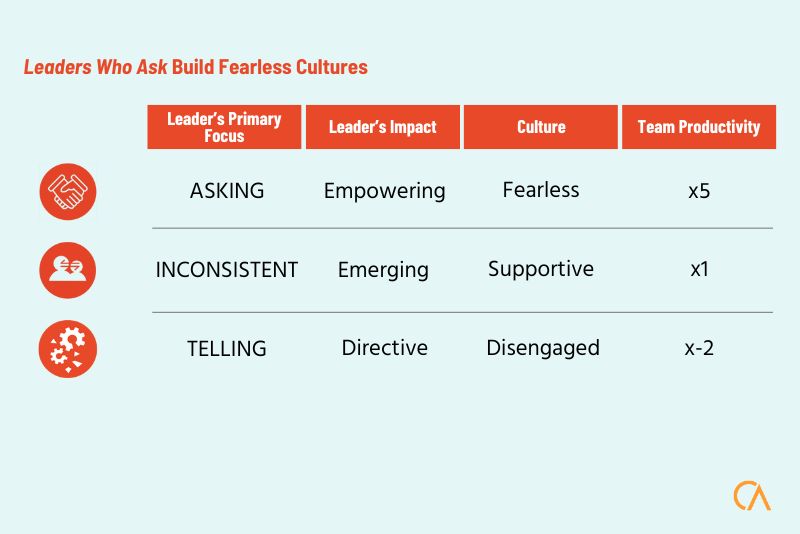
The topic is important, and you have great wisdom to impart, so why don’t people listen? Judith Glazier, creator of Conversional Intelligence, outlines five conversational blind spots that impact listening (Glaser, 2014).
- Assume everyone thinks like me. When we are wedded to our point of view, we lack the perspective to connect to others and realise they see and experience the world differently. We sense this lack of connection, so we try harder to persuade them we are right. This creates further barriers to their listening.
- Believe feelings don’t change our reality. When people are in a state of fear and/or distrust, cortisol is released. This closes down the prefrontal cortex—the ‘executive centre’ of the brain—and so changes how they interpret reality as well as triggering protective behaviours, which impact listening.
- Inability to empathise while in fear. In 2017, Google’s ‘Project Aristotle’ determined the seven skills present in their ‘best’ teams. The list was expected to include ‘specialist expertise’. Instead, it exhibited a range of soft skills, including empathy and emotional safety. Studies from neuroscience show us that when people are afraid, their ability to connect with others via the mirror neuron system is limited, so we are less able to truly connect with others and be empathetic. Is there a power balance or implied threat in your communication that might trigger fear on the person ‘not listening’? Or do you hold a fear that is reducing your ability to empathise?
- I remember; therefore, I know. We think we remember what we told them and their response. In fact, we actually remember what we thought we told them, and how we thought they responded. Glazier draws on research that indicates people drop out of conversions every 12 to 18 seconds to process what is being said. We remember what we think they said because there is a stronger internal process and chemical signal, which means our internal dialogue is stronger than the external dialogue. Any conversation could have three ‘realities’! (What you remember. What they remember. What was actually said.)
- They are listening, so they know what I mean. For people to understand us, they draw from experiences and memories stored in the hippocampus, or memories of what/how to do something stored in the neocortex. So people may be listening carefully to what you say, and yet ‘understanding’ something different. Meaning resides in the listener, and it’s your role to ensure you both have the same picture.
Which conversational blind spot could be holding you back? Which one most impacts the listening of others? Which one will you focus on today?
Go Fearlessly.
Reference: Glaser, J. E. (2014). Conversational Intelligence. New York: bibliomotion.
STAY IN THE LOOP





